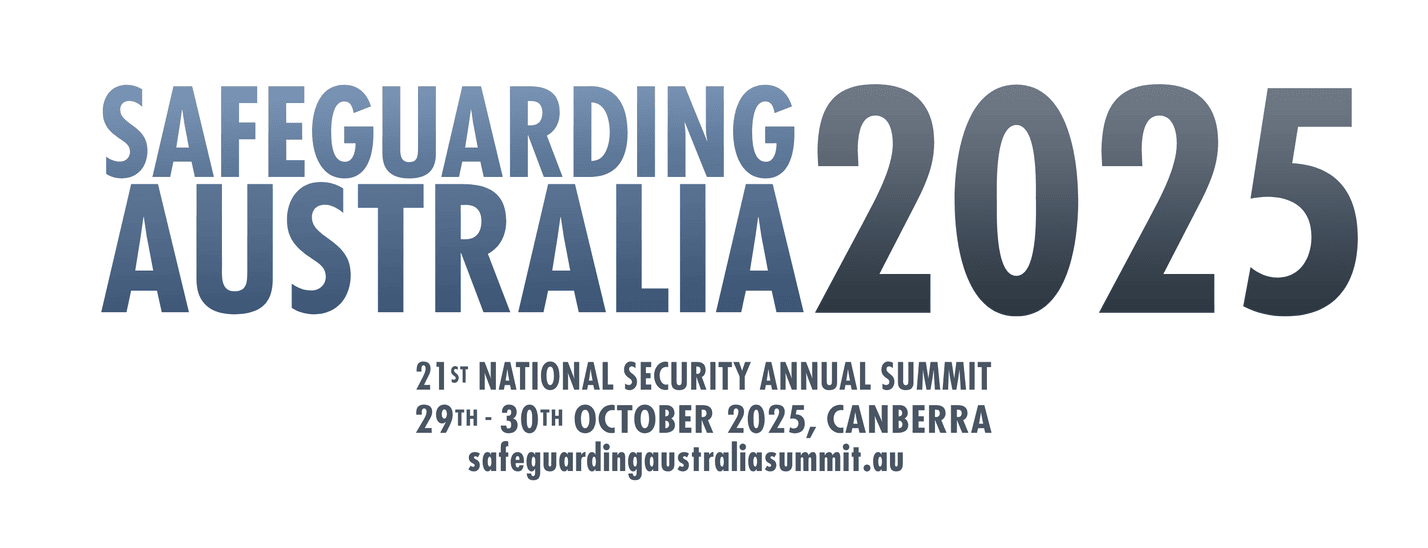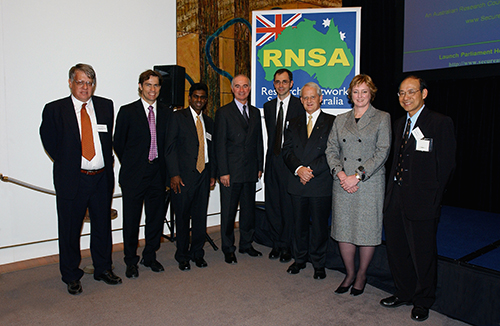Welcome to RNSA
The Research Network for a Secure Australia (RNSA) is a multi-disciplinary collaboration.
The Research Network for a Secure Australia (RNSA) is a multi-disciplinary collaboration established to strengthen Australia’s research capacity to enhance the protection from natural and man-made hazards.
RNSA’s Mission
The core function of the RNSA is to bring together academics, industry and government to identify potentially useful research and innovation, and research priorities.
The RNSA received Australian Research Council (ARC) funding in 2005. Although ARC funding finished in 2011, RNSA is continuing as an effective communication network.
The RNSA seeks to foster the development of collaborative projects between researchers and the security community.

Safeguarding Australia 2025
Safeguarding Australia summit series is Australia’s premier national security event and the nation’s longest running since 2002
Safeguarding Australia 2025, 29th – 30th October
The Commonwealth Club, Canberra
As America retreats into isolationism, leaving its allies to navigate a fractured global order, Australia stands at a crossroad. The 21st National Security Annual Summit — Safeguarding Australia 2025 in partnership with Defence, Science & Technology Group (DST) and Cyber and Infrastructure Security Centre of the Department of Home Affairs and Centre for Cyber Security Research and Innovation will seek to convene and address this pivotal moment: with China’s military assertiveness redrawing Indo-Pacific power dynamics and Washington’s wavering commitments sparking uncertainty, how will Canberra secure its sovereignty, prosperity, and unity in this era of disorder?
A World in Flux: Allies on the Edge
The summit’s theme, “Navigating the New World Disorder,” takes on urgent new meaning as Australia confronts dual realities: a distracted America questioning its role as global guarantor, and an emboldened China accelerating its military and cyber ambitions. From Taiwan to the South China Sea, Beijing’s adventurism looms large, while Washington’s inward turn forces allies like Australia to rethink dependence on traditional security frameworks. How does a middle power thrive—or even survive—in this vacuum?
This year’s summit dissects the hard truths of sovereignty in an age of disruption:
• Sovereign Capability & Resilience: Can Australia fast-track defence manufacturing and AI innovation to offset America’s unpredictability?
• Cyber & Critical Infrastructure: With state-sponsored attacks surging, how do we shield energy grids and supply chains from hybrid warfare?
• AI & Autonomy: Will AI be our guardian or Achilles’ heel in countering authoritarian tech dominance?
• Countering Coercion: As China weaponises trade and disinformation, what legal shields will protect Australia’s democracy?
• Regional Stability: With the Pacific becoming a chessboard, can Australia lead through partnerships with ASEAN and the Quad—or will it be outmaneuvered?

Events
The Attorney-General, Mr. Phil Ruddock launched the network on the 24th February 2005 at the Parliament House in Canberra. In addition Mr. Gary Nairn, Parliamentary Secretary to the Prime-Minister represented the Minister of Education. Other speakers included the Head of the SET Unit, Dr. Lynn Booth and ARC Executive Director, Prof. Elim Papadakis. The attendees were leading academic, government and business leaders in the critical infrastructure protection area.
Safeguarding Australia Summit
The Safeguarding Australia Summit series has been convened and hosted by Research Network for a Secure Australia in collaboration with event organiser, Safeguarding Australia Events.
RNSA Outreach Program
This has the aim of raising awareness in the business community of security issues and ‘business continuity’ identifying practical applications of research.
RNSA Young Investigator’s Grants
The RNSA will fund selected network participants who are Young Investigators, currently enrolled Masters or PhD level students at an Australian university, or recently completed a PhD (in the last five years), and is currently involved in CIP research.


